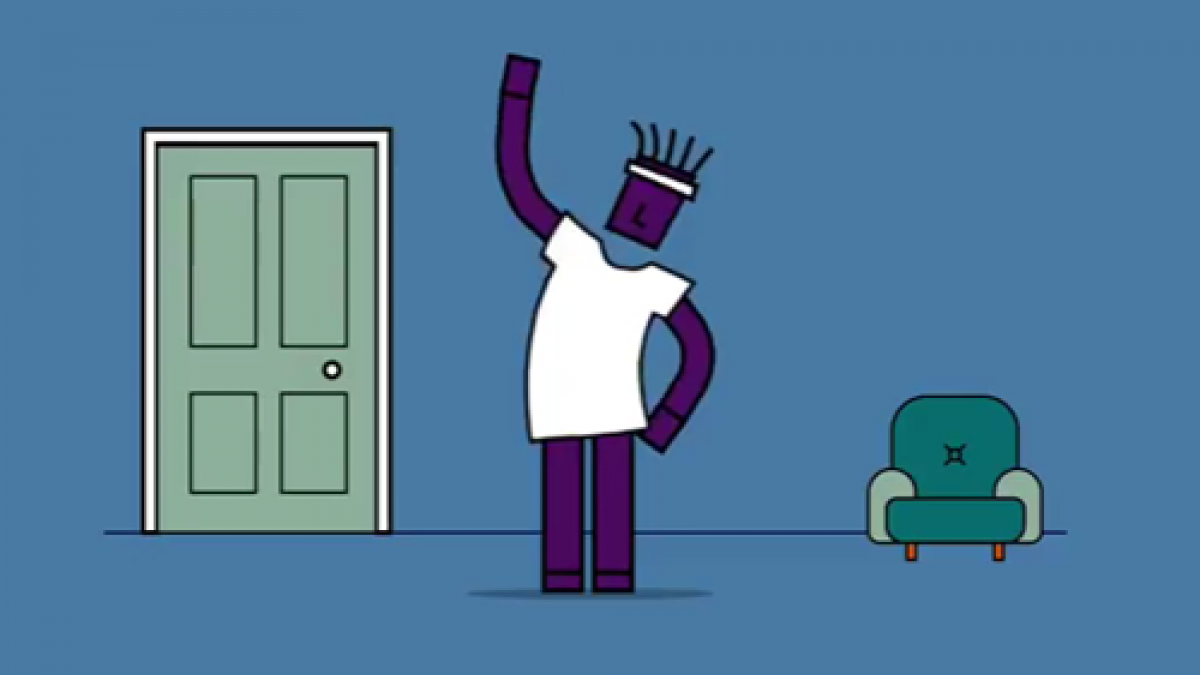Most cases of back pain are not serious, and engaging in exercise and everyday activities can help people get better and prevent future episodes.

The animated film highlights that exercise can aid recovery
These are some of the key messages in 10 things you need to know about your back, a new guide from the CSP which includes a webpage, patient leaflet and short, animated film.
The evidence-based resource aims to educate the public about back pain, inform health professionals and tackle common misconceptions about the condition.
It explains that in 98 per cent of cases back pain are not serious and that people recover reasonably quickly, often without treatment.
And it highlights that staying as active as possible and gradually returning to normal activities can aid recovery.
Chris Newton, a physiotherapist at University Hospitals of Leicester NHS Trust, helped to develop the materials and said: ‘We frequently see back pain patients who avoid – or are very careful about – bending, lifting and other simple, everyday movements that they have come to believe will cause them harm.
‘At the heart of this lies the understandable concern that because they are in a great deal of pain, something must be seriously wrong but we know that with 98 per cent of back pain that is not the case.’
Myth busting
The guide debunks a number of common misconceptions about back pain. It explains that
- surgery is rarely needed as conservative measures, such as exercise, have been shown to be just as effective
- there is no strong evidence that painkillers can speed recovery
- scans are rarely required and can actually do more harm than good, as age-related changes to the spine can be misinterpreted and cause people to avoid activities that could help them get better
Changing language around back pain
The resource emphasises that the spine is ‘stronger than you think’ and not easily damaged, in an effort to challenge misleading and fear-inducing language about back pain. This includes common phrases such as ‘crumbling spines’ and ‘slipped discs’, which can cause people to catastrophise about their condition and avoid potentially beneficial activities.
‘Some misconceptions are spread in the media, but it’s true that health professionals are also culpable of using language that causes patients to worry,’ said Mr Newton.
‘This in turn can lead people to become fearful of using their backs and they avoid doing the very things that will help them get better.
‘It’s vitally important to get across the message that lower backs are resilient structures, that permanent damage and serious causes are rare and that by gradually resuming normal movements and activities, in most instances, people do get better.’
Author: Robert Millett
Find Out More
Number of subscribers: 1